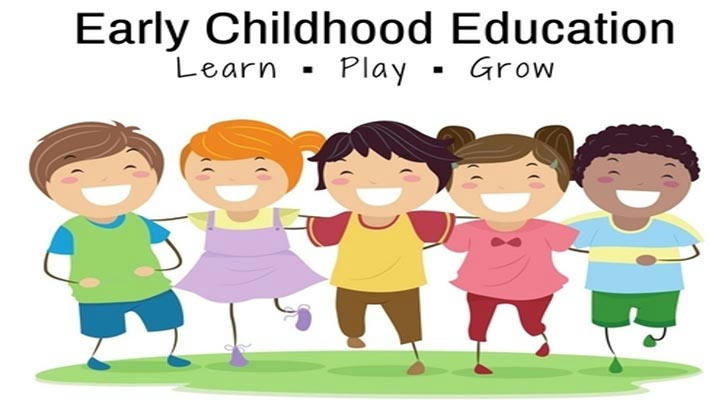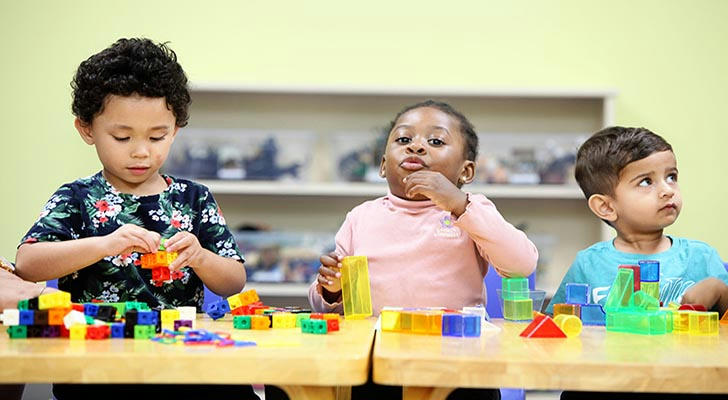The Key to Early Childhood Education: Early Childhood Development and Learning Curriculum
In modern society, early childhood education is considered a critical stage in a child's development. It not only provides a solid foundation for a child's academic, social, and emotional growth, but also affects their future success. Early childhood education curriculum is designed to meet the cognitive, social, emotional, and physical development needs of young children, helping children develop necessary skills and knowledge through various activities and programs.

Importance of Early Childhood Education
Early childhood education has a profound impact on a child's development. It not only improves a child's academic ability, but also promotes their social and emotional growth. Through early childhood education, children can learn basic reading, math, and self-control skills that will play an important role throughout their lives.
Early childhood education also helps children build confidence and self-reliance. By participating in various activities and programs, children can develop problem-solving skills and teamwork, which are very important in future learning and work. The long-term benefits of early childhood education include better academic performance, higher educational achievement, and better socioeconomic outcomes.
Features of Early Childhood Education Curriculum
Play-based learning: Play is the primary way that young children learn. Through play, children can explore, experiment, solve problems, and interact meaningfully with others.
Hands-on activities: Hands-on activities such as crafts, science experiments, and building games can stimulate children's curiosity and creativity and help them understand basic scientific concepts.
Storytelling and reading: Storytelling and reading help children develop language skills, comprehension, and imagination. These activities also enhance their love of literature.
Music and dance: Music and dance activities can help children develop motor skills, sense of rhythm, and self-expression.
Teamwork and collaboration: Through teamwork and collaborative activities, children can learn how to work with others, solve problems, and share ideas.
Cultural and language exploration: Introducing children to different cultures and languages helps them understand and be inclusive of the world.
Benefits of high-quality early childhood education
High-quality early childhood education can bring long-term benefits to children. Research shows that children who participate in high-quality early childhood education have significant advantages in academic performance, social-emotional development, and future educational achievement. They are more likely to complete high school, earn a degree, and pursue a career.

Key elements of a high-quality early childhood curriculum:
Developmentally appropriate: The curriculum should match children's cognitive, social, emotional and physical development stages, providing activities and experiences that are appropriate to their age and needs.
Playful learning: Emphasizes the importance of play in learning and allows children to learn through exploration and experimentation.
Hands-on experiences: Provide a variety of hands-on activities that encourage children to explore and learn through sensory experiences.
Inclusive and culturally responsive: The curriculum should reflect diverse cultures, backgrounds, abilities and perspectives, ensuring that all children feel respected and valued in the classroom.
Holistic development: The curriculum should cover multiple developmental areas such as cognitive, social-emotional, physical, language and literacy, recognizing the interconnectedness and importance of these areas.
Different types of early childhood curriculum
There are currently a variety of early childhood curriculums to choose from, each with its own unique philosophy and approach:
Reggio Emilia: This approach emphasizes project-based learning, guiding classroom activities through children's interests. The classroom environment is seen as an educator, encouraging children to create and explore.
Waldorf: Waldorf education focuses on structured and creative learning, emphasizing the development of practical skills and artistic abilities. The classroom environment is usually mixed-age and uses a play-based learning approach.
Montessori: Montessori education is child-centered, with teachers as learning guides. Children choose their own activities in mixed-age classrooms and develop cognitive, social and emotional abilities through hands-on materials.
HighScope: This approach emphasizes children's initiative and self-exploration, and promotes cognitive and social-emotional development through hands-on activities.

Long-term impact of early education
The impact of early education is not limited to academic performance, but also extends to children's social-emotional development and future success. Research shows that children who participate in high-quality early education are more likely to have better educational achievements, better health and less crime in adulthood.
The quality of early education has a profound impact on children's development. High-quality early education not only provides a good academic foundation, but also helps children build confidence and self-reliance, and promotes their social and emotional growth.
Conclusion
Early education is a critical stage in children's growth, providing a solid foundation for their academic, social and emotional development. Through high-quality early childhood education programs, children can acquire the necessary skills and knowledge, build confidence and self-reliance, and achieve better academic performance and socioeconomic outcomes. The long-term benefits of early childhood education not only affect individuals, but also have a positive impact on the entire society. Therefore, choosing the right early childhood education program is crucial to the future development of children.
